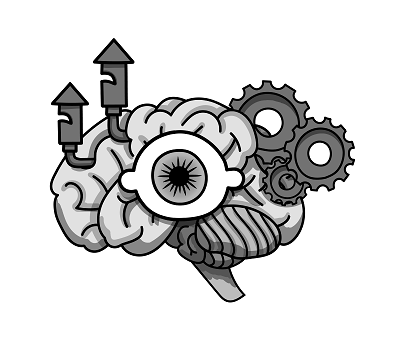- cross-posted to:
- food@beehaw.org
- cross-posted to:
- food@beehaw.org
Looks like only available in one restaurant for now, but it’s a start.
“For one thing, cultivated meat is not vegan or vegetarian.” -> I know some vegans who would disagree with that, on the grounds that no animal cruelty or slaughter is involved. I suspect there will be a fair bit of debate on this as cultivated meat becomes more widespread. I would guess just like we’ve already got “I’m a vegetarian who eats fish” we’ll end up with “I’m a vegan who does/doesn’t eat cultivated meat.”
You might want to cross-post this to https://beehaw.org/c/food too.
I know some vegans who would disagree with that
I definitely would!
Usually, the reason people go vegan is to try to reduce (hopefully eliminate) animal suffering, and/or to reduce green house gas emissions from animal farming.
Cultivated meat deals with the first, and, depending on how it’s produced, can probably entirely avoid the second as well.
I don’t know the process in detail, but I would also imagine that cultivated meat is no more sourced from animals than a plant that was fertilized with animal dung, and that would still be considered vegan.
There are some analyses out there that suggest cultivated meat will actually be worse for the climate than animals - for example https://www.ucdavis.edu/food/news/lab-grown-meat-carbon-footprint-worse-beef
Of course the cultivated meat startups disagree: https://www.npr.org/2022/11/21/1138371310/a-taste-of-lab-grown-meat
I was going to say, all the articles and science I saw on lab meat previously had it consuming far, far less resources than the traditional beef industry. Definitely going to read more about it but I’m still team lab meat for now.
Even if cultivated meat was initially bad for the environment, I’d guess that it would be easy to minimize it’s environmental impact versus traditional meat. There’s only so much you can do to stop cows from belching CO2. However, a factory making vats of cultured meat could install pollution controls to reduce their emissions.
I’d definitely like to see peer reviewed studies backing everything up, but my guess is that cultivated meat will on par with or be better for the environment than traditional meat and will only get better.
Yeah so far it seems to be battling experts. UC Davis is a big agriculture/animal science school. On the other hand I don’t trust the lab meat industry’s own experts either. Hoping at some point to see a credible neutral analysis.
I’ve read it, and there’s already two issues:
- Not peer reviewed, so more margin of error
- It says that it will only be worse if the stuff needed to make lab grown meat is purified at pharmaceutical levels; if the stuff is food grade then the claim begins falls apart.
I think it’s odd to even compare. One is a brand new industry, the other is a hundreds of year old process in terms of learning how to make it efficient. Over time, I have no doubt lab-grown can out-carbon footprint actual cattle raising.
That was an interesting read, thanks for the link!
But yeah, I had no idea it was so much worse for the environment. But it seems there’s still the possibility it will be better one day, so I hope for the best. I guess in the meantime I’ll stick with plant-based foods.
You should check out issues brought up about this article by other comments since yours.
Oh, I did see some of them later, but thank you for the heads-up!
I noticed it wasn’t peer-reviewed, but when they mentioned the process and I started to imagine all it must take to cultivate meat in a lab, it started to seem that it could be a lot worse for the environment than I had really considered, and it didn’t seem implausible that it could be worse than farmed meat.
Either way, at this point I would be willing to bet it definitely isn’t as sustainable as just eating plant based food, so I’d rather stick with that for now; I’m accustomed to it already anyway.
They biopsy live animals to get the cells to grow meat, so I am sure many vegans will object – but the labs theoretically never need to get more cells. The question becomes whether they do or not and how the source livestock is treated. Do they just sell the source animals to a slaughterhouse? Or do they donate them to a petting zoo? They are unlikely to tell the public.
I noticed the post’s link is PR from the Upside company website. GOOD Meat is another provider. Here is an NPR link with a bit less sensationalism: https://www.npr.org/sections/health-shots/2023/06/21/1183484892/no-kill-meat-grown-from-animal-cells-is-now-approved-for-sale-in-the-u-s
I’m not vegan, but I do keep Kosher and I’m sure there would be a huge debate in the Jewish community as to whether cultured meat was kosher.
Assuming that the animal that the original cells were taken from was Kosher (e.g. a chicken or a cow, not a pig), then would the cultured meat be Kosher? Would it not need to follow usual processes (specific slaughter techniques, salting and soaking the meat to remove blood, etc) if there was no animal/blood?
As cultured meat takes hold, there are going to be a lot of communities trying to take it into account. I’m sure there will be plenty of arguments as to the status of it as well. It should be interesting.
Looks like it’s already under discussion (not surprising given that some of the cultured meat companies are in Israel: https://time.com/6251154/lab-grown-meat-kosher-israel-rabbi/ https://www.chabad.org/library/article_cdo/aid/2293219/jewish/Is-Lab-Grown-Meat-Kosher.htm
This is a fascinating issue, though it looks like from that article that there is no consensus. I think I’d side on it being kosher and pareve though as Rabbi Lau asserts in that article. The root principle of kosher laws is food safety and kindness to animals (however misguided that is given the we now know schechting an animal is actually horrifically cruel to it). Moreover, the rule against mixing meat and dairy derives from the prohibition on boiling a calf in its mother’s milk. Cultivated meat is the least cruel method of acquiring meat obviously and it has no mother, so kosher and pareve in my book.
I know at least one person that has preemptively rejected cultivated meat because it requires the death of an animal.
Even though they know that a single animal’s death could then spare uncountable billions of future animals.
… does that make the chicken sampled for cultivation Chicken Jesus?
If you’re going to start rejecting things because even one animal died in the process of making them, you’d have to say goodbye to much of modern medicine too.
I would argue at some point they would need to reject modern living as a whole. Go build an A frame in the woods. Forage for berries and shit. Many aspects of the ways we live cause deaths. Like cars hitting animals. So if a single animal is too much, I have a feeling they should really be following that mindset.
The amount of animals killed by a modern farm tractor combine passing through is enormous. Its just that we don’t count “vermin” like that life. And most people who are vegan will never see it.
I don’t think that cultivated meat technically requires the death of an animal at all.
That person is incorrect and should read up on the subject. They take cells from a live animal, like a biopsy. The animal is otherwise unharmed.
If the vegan is there for ethics then cultivated meat should be all good. More ethical than cheese or leather anyway.
Maybe some will complain about the source of the starter cells or something.
Yes, there ain’t much to complain except for health. After all, vegan isn’t a diet, it is an ideology and if meat was the only healthy option, then it would be vegan to sometimes eat animal products and use products that caused harm to animal. In fact, I doubt there is such a thing as a totally vegan as the world is quite harsh. Because veganism is about minimising harm. Anyway, back to the diet, vegans generally believe that meat isn’t a necessity for humans thus making this lab meat potentialy unhealthy (according to that belief).
Health wise there really isn’t a big advantage to being vegan, vegetarian, or a meat eater. People can have healthy or unhealthy diets regardless of particular restrictions. In the past there wasn’t a lot of vegan junk food or options so vegans kinda had to be healthy on accident. Now days you can get just as messed up on vegan food. As an example oreos are vegan but no one is going to argue they’re a healthy meal.
A complete protein is important but a little more complex to get without meat or dairy. Right now the cheapest protein sources are chicken or protein powder derived from milk (whey). Vegan options are kinda pricey for powder and whole foods would be kinda a pain if you want a higher protein diet. I wonder if they could do “lab grown” complete protein powder cheap.
Arguably the lab grown meat could be more efficient than growing a whole chicken. And a lot of people simply won’t give up meat.
Speaking just for myself, I’ll be giving cultivated meat a pass. Not because I’m a vegan, but because I avoid ultraprocessed foods and venture capitalism as much as possible.
As far as I read recently, currently the liquid to provide the cells with nutrition is gathered from slaughtering cattle. I couldn’t find the link, will keep looking, but if anyone has information to the contrary, I’d be happy. I love the idea of meat-taste without animal cruelty and I think it is the way we have to go if we as a species want to survive.
EDIT: https://gemeinsam-gegen-die-tierindustrie.org/en/clean-meat-the-solution-to-the-problems/
In any case, it is important to bear in mind that the production process regularly relies on fresh muscle tissue and continuously on growth serum.
The growth serum is usually obtained from the heart of a calf embryo, for which the calves and sometimes the mother cow are slaughtered.9b Some companies state that they have replaced the calf serum with an algae nutrient solution.10 It also remains to be seen whether this alternative will prevail.
As the domain name already suggests (“Together against animal industries”), this article seems heavily biased, however. If tissue of a calf embryo is required for the serum, that’s not a calf, but an embryo, which is slaughtered. Just like abortion is not murder.
Nevertheless, I hope the mentioned algea nutrition solution will prove a viable alternative.
https://upsidefoods.com/blog/animal-component-free-upsides-cell-feed-breakthrough-levels-up-the-future-of-cultivated-meat
This is apparently from one of the companys that Works on cultivated meat.According to them, they got the animal cell free nutrition working. And use it for their production.
Since its from the company directly, You should take it with just as much of a grain of salt as the other article.
But, they have a very convincing argument:
The bovine cells are the most expensive part of the production, and using them for production purposes would be prohibitly expensive.
As cynical as that take is, to me thats the best argument that animal cell free meat will be the rule instead of an exception for cultured meat.
Thanks! Let’s hope for the best, I’d definitely embrace it as an option. And unfortunately, “zynical” is often synonymous with “realistic”…
I remember reading about cultivated meat using fetal bovine serum, so I’m wondering if Upside managed to take out a reliance on livestock for its process
There is no real way to scale production without eliminating fetal bovine serum.
People are posting sources saying that most companies have been serum free for a few years now.
Ex. https://twitter.com/elliotswartz/status/1483433664616669184?s=21
This is awesome! I had no idea lab grown meat was so close to being viable. I currently eat meat (with some guilt), and I can’t wait to get to the point where I can eat more ethically
agreed, regardless of whether or not it’s ethical to raise animals for meat, the way we currently do it is an eldritch abomination where “cage free” chicken are kept so tightly packed they will peck each other to death unless debeaked, and where “cut from neighbors knife” is a common injury report at slaughterhouses.
Yeah I’ve been about 50/50 with plant based beef and chicken. I’m extremely excited for this. Might be the final nail in the coffin for Big Meat
It’s pretty typical for a new product’s development to be inefficient until the processes are scaled, I wouldn’t read into it too much at the moment. Process improvements are happening at a ridiculously quick rate in this field; we’re talking on a weekly to monthly basis.
Keep in mind, too, that animal ag has a lot more money behind it than these folks, and similar to the oil companies they’re going to be spending buckets to slow the transition.
Great news. I think we’re still not quite there yet with cultivated meat, but it has great promise. Cultivated meat has the potential to be cheaper, far more environmentally friendly, obviously more ethical, and maybe even healthier. I hope it reaches full scale production with all these benefits in my lifetime.
Hopefully, while not being harmful.
I can’t imagine it would be worse than traditional meat - no antibiotics, bits of bone, disease, etc. Bacterial contamination is the only concern I can think of, but that affects every category of food.
You commented twice
That’s where my mind goes as well. I am more so talking about unforseen concerns. Don’t get me wrong. As soon as it is widely available and affordable I will totoaly eat it, I just worry there might be something we are missing. It’s kind of a human tradition.
I am certain that lab grown meat will be one of the most heavily scrutinized advancements in food technology probably ever. If there’s even a hint that something is wrong with it the news will be everywhere.
I can’t imagine it would be worse than traditional meat - no antibiotics, bits of bone, disease, etc. Bacterial contamination is the only concern I can think of, but that affects every category of food.
But where will we get our daily pesticides requirements if there’s no animal to eat the chemically protected crops?
as an omnivore dating a vegetarian who doesn’t eat meat for ethical reasons i am so, so excited!!!
Me, I can’t usually eat 'em 'cause my girlfriend’s a vegetarian. Which more or less makes me a vegetarian, but I sure love the taste of a good burger. -Jules
I am very curious what price they can get this to. If traditional chicken breast is $11 a pound and this is $20, it’s going to be rough. If it’s around the same or cheaper, it could do very well!
I’m sure that it will initially cost a premium, before coming down in price as the technology matures. I’m also curious about the relative environmental impact that cultivated meat has versus raising livestock.
I was wondering that too. It sounds like a promising technology.
Dang, I figured CO2 emissions would be much better than traditional livestock but I wouldn’t have guessed that much better.
Right? The water and ghg emission is nearly at the same level as fruits and veggies from what I can tell. That’s intense. Energy use is still pretty high but I imagine that’ll get optimized over time. Low key excited to try it too, I wasn’t too sold on the meat alternatives from beyondmeat, but this looks very interesting.
Livestock is a huge CO2 contributor, coupled with the fact that you have to cut down trees to make room for them, it’s a huge problem.
Thanks for this great info
for fast-food purposes, the plant-based meats (Impossible, Beyond Meat) were generally able to get in the door at parity with ordinary meat from what i can tell. i’m not sure about in-grocery-store, though. they’ve also been racked by waning consumer interest, probably because they seem “faddish” for lack of better wording. that, i honestly think, is the biggest hurdle to cultivated meat–not price.
I buy Beyond Meat bricks for $8.99 a pound. That’s pricey compared to regular beef, but I’m an outlier with pricing. I keep kosher at home and kosher meat is VERY expensive. Between the price and hassle (it requires separate pots/pans, plates, utensils, etc), I keep vegetarian at home. It’s just cheaper and easier.
Beyond Meat lets me cook “beef” dishes for less than kosher beef would cost me and with more flexibility. (Tonight, we had pasta and Beyond Beef meatballs with cheese - a dish I couldn’t make using kosher meat.)
There’s still a market for products like Beyond Beef, but I agree that they’ll need to hit “normal need” price levels before it really takes off.
Oh interesting. Kosher is a whole market I didn’t even think of with Beyond Meat.
Is cultured meat considered “real meat” or “kosher” for your purposes? (I hope I’m using the term correctly)
That’s actually a big debate happening in the kosher community.
On one hand, you don’t need to do things like check every organ for signs of illness. As long as the vat doesn’t get infected with something, it’s good. You also don’t need to drain blood from the resulting meat since it doesn’t have any.
On the other hand, if you take a cell from a living animal, is the whole mass in the vat considered a living creature? If so, eating from it might not be allowed (eating flesh from a live animal is forbidden). The lack of any kind of slaughter process could either mean they want harvested meat is fine or none of it is.
There will likely be rabbis ruling both ways for awhile before any consensus emerges. If any ever does. (Judaism is very decentralized and consensus is often difficult to impossible.)
Where is chicken breast $11 a pound? That’s like pasture raised organic prices where I am in the US.
I just looked at what ShopRite said 🤷
Maybe avoid that particular store. Also, online prices are inflated I believe. 👍
deleted by creator
I have good feeling for the effects on environment tbh, because it changes a lot of ethical and environmental concerns. Some of them will definitely be gone for good.
I’m very interested to learn what combination of cells they used to hit certain flavors and how they developed the right network of cells to make the right texture. Is there a ‘grain’? Will there be dark meat and white meat? So many questions! Can’t wait to see if they end up making pulled pork down the road, haha.
This is super exciting! Been waiting a long time for this
So they say the meat is 99% chicken cell, does anyone know what the 1% is? I’d just feel better knowing.
Typically that’s more of a CYA move. If someone finds something that isn’t chicken cell they could sue for false advertising, but if it’s 100% chicken cell nobody can sue for saying it was 99%.
I was digging into this question and only found that it might be leftovers of whatever they feed the cells (which also no longer includes anything from live or harvested animals, which is cool). CYA covers that and so much more so I think you’re right.
I don’t know, and maybe I shouldn’t comment, but my first thought was that it might be some sort of edible lattice that makes sure the chicken cells grow in a shape that looks vaguely filet-like.
Cant wait for the bacon lattice for my sandwich
99% chicken 1% Jerry. There’s been [ 0 ] days since the last workplace accident.
This is amazing! I can not wait to eat more ethically.
That’s cool! If I saw this in my supermarket I’d def try it.
What’s the number of its carbon footprint?
This is a huge a step forward!
Can’t wait until this is in grocery stores!
I guess it’s a start, but from the pictures I’ve seen, it looks more like a mechanically separated chicken product than good whole muscle meat. Maybe okay for applications that involve a lot of processing like a breaded and fried thing, or stews/curries where it’s going to be cooked for an extended time with a lot of added flavour. This is a long way from replicating something like a grilled chicken breast.




















